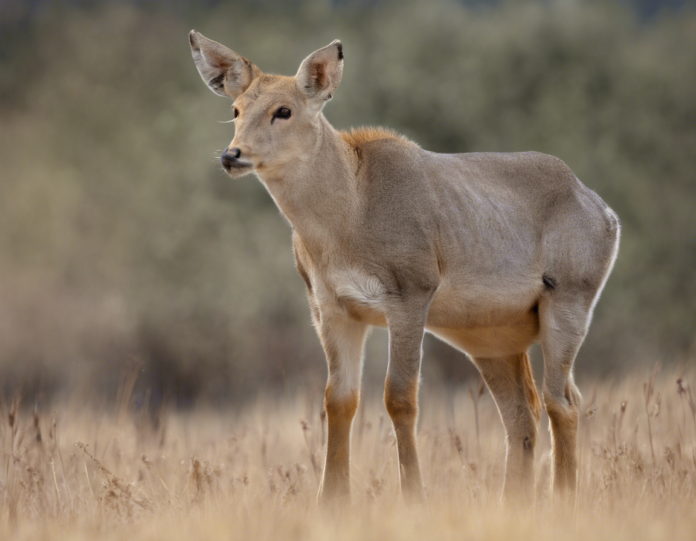Introduction
Elk, also known as wapiti, are one of the largest species of deer in the world. They inhabit various regions across North America and parts of Asia and are revered for their majestic stature, impressive antlers, and strong social structures. This article delves into the fascinating world of elk, exploring their physical characteristics, behavior, habitat, diet, conservation status, and significance in various cultures.
Physical Characteristics
Elk are renowned for their large size, with adult males, known as bulls, weighing between 600 to 1,000 pounds and standing about 5 feet tall at the shoulder. They are easily distinguished by their reddish-brown coats, shaggy manes, and a yellowish rump patch. One of the most striking features of elk is their antlers, which can reach impressive lengths of up to 4 feet and weigh as much as 40 pounds. These antlers are shed and regrown annually, with each new set typically larger and more branched than the last.
Behavior
Elk are highly social animals that typically form herds of cows, calves, and young bulls. During the breeding season, known as the rut, dominant bulls compete for mating rights by bugling, displaying their antlers, and engaging in physical contests. This period is marked by intense vocalizations and dramatic displays of dominance. Outside of the rut, elk herds graze and rest together, with females playing a crucial role in nurturing and protecting the young calves.
Habitat
Elk are adaptable creatures that can thrive in a variety of habitats, including forests, grasslands, and mountains. They are commonly found in the western United States, Canada, and parts of Asia, where they roam vast expanses of wilderness in search of food and shelter. During the harsh winter months, elk migrate to lower elevations in search of milder weather and access to forage. Protection of these crucial habitats is vital for the long-term survival of elk populations.
Diet
Elk are herbivores with a diverse diet that includes grasses, sedges, shrubs, and tree bark. They are selective feeders, choosing the most nutritious plant species available in their environment. During the spring and summer months, elk graze on lush grasslands and browse on tender leaves and shoots. In the fall, they consume large quantities of mast, such as acorns and berries, to build up fat reserves for the upcoming winter. Elk are also known to dig through snow to access buried vegetation during the colder months.
Conservation Status
Elk populations have faced numerous challenges over the years, including habitat loss, overhunting, and competition with livestock. Conservation efforts, such as habitat protection, reintroduction programs, and regulated hunting seasons, have helped stabilize elk populations in many regions. However, ongoing threats such as climate change, disease, and human development continue to impact elk and their habitats. Collaborative conservation initiatives involving governments, wildlife agencies, and local communities are essential to ensure the long-term survival of elk for future generations.
Cultural Significance
Elk hold a special place in the folklore and traditions of many indigenous cultures throughout North America. They are revered for their strength, agility, and majestic presence in the wilderness. Elk imagery often appears in Native American art, songs, and ceremonies as a symbol of power, wisdom, and connection to the natural world. In modern times, elk hunting remains a popular recreational activity for sportsmen and conservationists alike, with strict regulations in place to ensure sustainable harvests and healthy elk populations.
Frequently Asked Questions (FAQs)
- Are elk and moose the same animal?
-
No, elk and moose are two distinct species of deer. Moose are larger in size, with broader antlers and a different body shape compared to elk.
-
Do elk pose a threat to humans?
-
Elk are typically docile animals and avoid confrontation with humans. However, during the rutting season, bulls can become more aggressive and should be approached with caution.
-
What is the best time of year to observe elk in the wild?
-
The fall rutting season is an ideal time to witness elk behavior, as bulls engage in vocal displays and competitive sparring for mating rights.
-
What is the average lifespan of an elk in the wild?
-
In the wild, elk can live up to 15 years or more, depending on environmental conditions and predation risks.
-
How do elk communicate with each other?
-
Elk use a combination of vocalizations, body language, and scents to communicate within their herds. The bugle, a haunting call emitted by bulls during the rut, is one of the most distinctive elk vocalizations.
-
What role do elk play in ecosystem balance?
-
Elk are considered a keystone species that shape their habitats through grazing and browsing activities. By controlling plant growth and distribution, elk have a cascading effect on other species within the ecosystem.
-
Are elk endangered or threatened?
-
While elk populations have declined in some regions due to historical pressures, they are not currently considered endangered. Conservation efforts have helped stabilize elk numbers, and they are actively managed to ensure sustainable populations.
-
Can elk be domesticated or kept as pets?
-
Due to their wild nature and specific habitat requirements, elk are not suitable for domestication or as pets. They thrive best in their natural environments and require ample space to roam and forage.
-
What are the main predators of elk in the wild?
-
Wolves, bears, mountain lions, and coyotes are among the main predators of elk in their natural habitats. Predation plays a crucial role in controlling elk populations and maintaining ecosystem balance.
-
How can individuals support elk conservation efforts?
- Individuals can contribute to elk conservation by supporting habitat protection initiatives, advocating for sustainable hunting practices, and raising awareness about the importance of preserving wild spaces for elk and other wildlife species.




